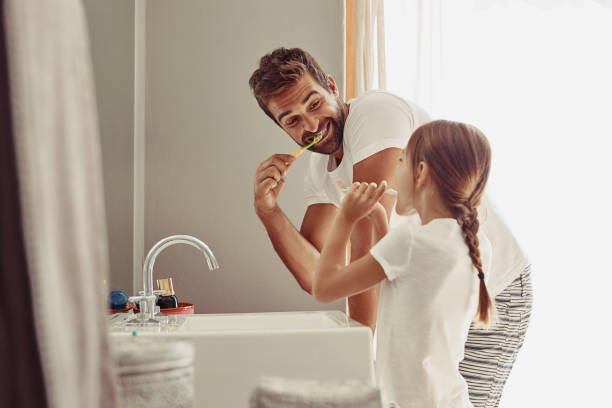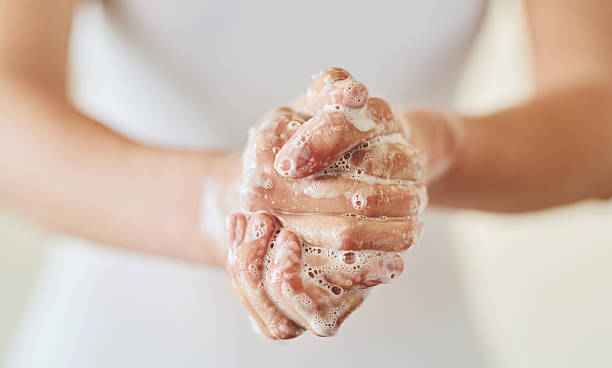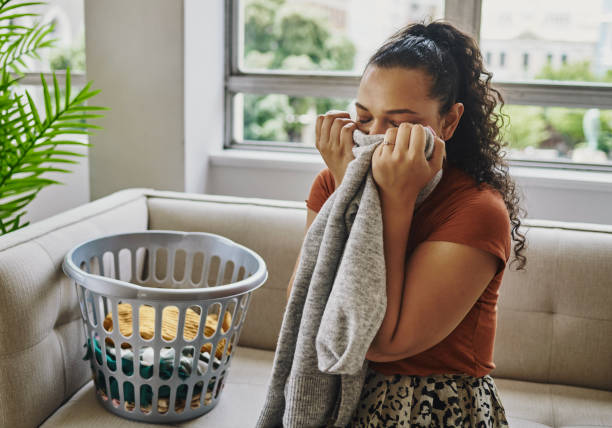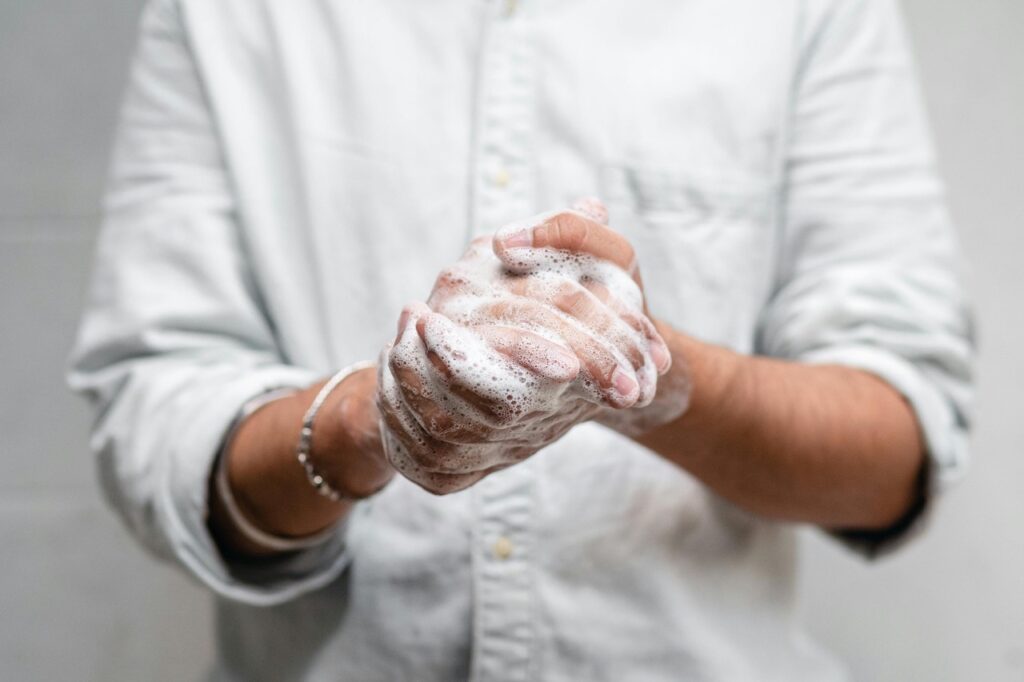Health
The Surprising Link between Personal Hygiene and Optimal Health
Good personal hygiene is more than just smelling fresh and looking good; it also has a direct impact on your entire health. Maintaining good personal hygiene is essential for preventing the spread of diseases and infections, as well as staying well and happy.
Importance of Personal Hygiene
Maintaining good personal hygiene is important for a variety of reasons. First and foremost, it aids in the prevention of disease transmission. Germs and germs can easily transmitted from person to person via personal contact, contaminated surfaces, or even the air. By maintaining appropriate personal cleanliness, you can lower your chances of developing numerous illnesses caused by these infections.
Regular handwashing is one of the most efficient strategies to prevent the transmission of infection. Washing your hands with soap and water for at least 20 seconds helps to eliminate germs and bacteria that you may have picked up from surfaces or other people. To reduce the spread of infections, wash your hands before eating, after using the restroom, and after coughing or sneezing.

Common Personal Hygiene Practices
There are various personal hygiene activities that should be integrated into our daily routines. Brushing our teeth at least twice a day promotes oral health and prevents dental problems like cavities and gum disease. Regular bathing or washing keeps our bodies clean and fresh by removing sweat, grime, and dead skin cells. Additionally, washing our hair on a regular basis helps to remove excess oil and debris, which promotes scalp health.
Maintaining good grooming habits is also important for personal hygiene. This includes clipping our nails on a regular basis, both on our fingers and toes, to prevent dirt and bacteria from building up. Cleaning our ears gently, such as with a wet cloth or cotton swabs, can help avoid earwax buildup and ear infections. Finally, wearing clean clothes and changing our underwear on a daily basis ensures that we keep proper hygiene.
Benefits of Good Personal Hygiene
Aside from the obvious physiological benefits, proper personal hygiene can improve your mental health. Feeling clean and fresh can raise your self-esteem, improve your attitude, and allow you to create a good impression on others. When you maintain good personal hygiene, you are more likely to feel comfortable in your own skin and have a positive self-image.
Good personal hygiene might also improve your social life. People are naturally drawn to those who maintain their appearance and smell fresh. By maintaining proper personal hygiene, you increase your chances of having favorable interactions with people and developing stronger relationships. Furthermore, basic personal cleanliness can help you avoid unpleasant situations like body odor and foul breath, which can have a detrimental impact on your social interactions.

Personal Hygiene Tips for Different Age Groups
Personal hygiene should be a top priority for everyone, regardless of their age or gender. However, certain age groups may require special consideration when it comes to personal hygiene routines.
For Children
It is critical to educate kids excellent hygiene practices from an early age. This includes showing kids how to properly wash their hands, brush their teeth, and bathe. As kids grow older, they should be taught the value of changing their clothes on a regular basis and practicing good grooming habits.
For Teenagers
Teenagers may require more advice around personal cleanliness as their bodies undergo hormonal changes. It is critical to educate children on the necessity of taking regular showers, applying deodorant, and implementing good hygiene habits during menstruation for girls.
For Adults
Adults should continue to practice appropriate personal hygiene habits throughout their lifetime. This involves good dental hygiene, regular washing, and grooming. Furthermore, people should be aware of any unique hygiene needs that may occur as a result of age-related difficulties, such as caring for their skin as it becomes more prone to dryness or using assistive devices for those with mobility limitations.
Personal Hygiene at Home and in Public Places
Personal hygiene should not be limited to the house; it is also vital to maintain excellent hygiene in public areas. To reduce the spread of germs, wash your hands after using public toilets, use hand sanitizers when soap and water are unavailable, and avoid touching your face.
To prevent the spread of bacteria and fungi in public spaces like gyms or swimming pools, shower before and after using the facilities. Using personal towels or wipes can also aid in maintaining personal hygiene in these common areas.

Personal Hygiene and Disease Prevention
Good personal hygiene is essential for preventing the transmission of illnesses and infections. Regular handwashing can reduce your chance of developing illnesses like the common cold, influenza, and gastrointestinal infections. Washing your hands with soap and water removes the majority of germs and bacteria from your hands, lowering the risk of transmission.
In addition to handwashing, additional personal hygiene behaviors like appropriate oral hygiene and regular bathing help to avoid disease. Brushing your teeth twice a day helps to remove plaque and protects against tooth decay and gum disease. Regular bathing helps to remove dirt and bacteria from your body, lowering your risk of skin problems.
Personal Hygiene Myths Debunked
There are various myths about personal hygiene that must be dispelled. One prevalent misunderstanding is that antibacterial soap is more effective at destroying germs. However, normal soap and water are equally effective at eliminating germs from your hands. The goal is to properly wash your hands for at least 20 seconds, regardless of the soap used.
Another myth is that showering or bathing too frequently may dry up your skin. While excessive bathing can eliminate natural oils from your skin, regular bathing with light soap and moisturizing can help keep your skin healthy without causing dryness.

Personal Hygiene Products and Their Role
Personal hygiene products are essential for maintaining proper hygiene practices. Using the appropriate items can help keep your body clean and fresh while reducing the chance of infection.
Toothpaste, toothbrushes, and dental floss are needed for good oral hygiene. Choosing the correct toothpaste and toothbrush for your unique needs might help you avoid dental problems and maintain a healthy smile.
Soap, shampoo, and conditioner are essential for cleansing and preserving the health of your skin and hair. Using products that are appropriate for your skin type and hair condition will help you obtain the best results.
Deodorants and antiperspirants are used to prevent body odor and excessive sweating. Choosing the correct product for your body’s needs might help you feel refreshed throughout the day.
Conclusion
In conclusion, personal hygiene is more than a habit; it is an essential component for optimal health. Practicing proper personal hygiene not only keeps you looking and smelling good, but it also helps to avoid the spread of diseases and infections.
By implementing healthy habits into your daily routine, such as regular handwashing, appropriate oral hygiene, and bathing, you may improve your quality of life while also protecting your health. Remember that excellent personal hygiene is more than just preserving your appearance; it is about caring for your body and receiving the rewards of better overall health. So, prioritize personal hygiene and reap the benefits of improved physical and mental health.
Trusted Health, Wellness, and Medical advice for your well-being


